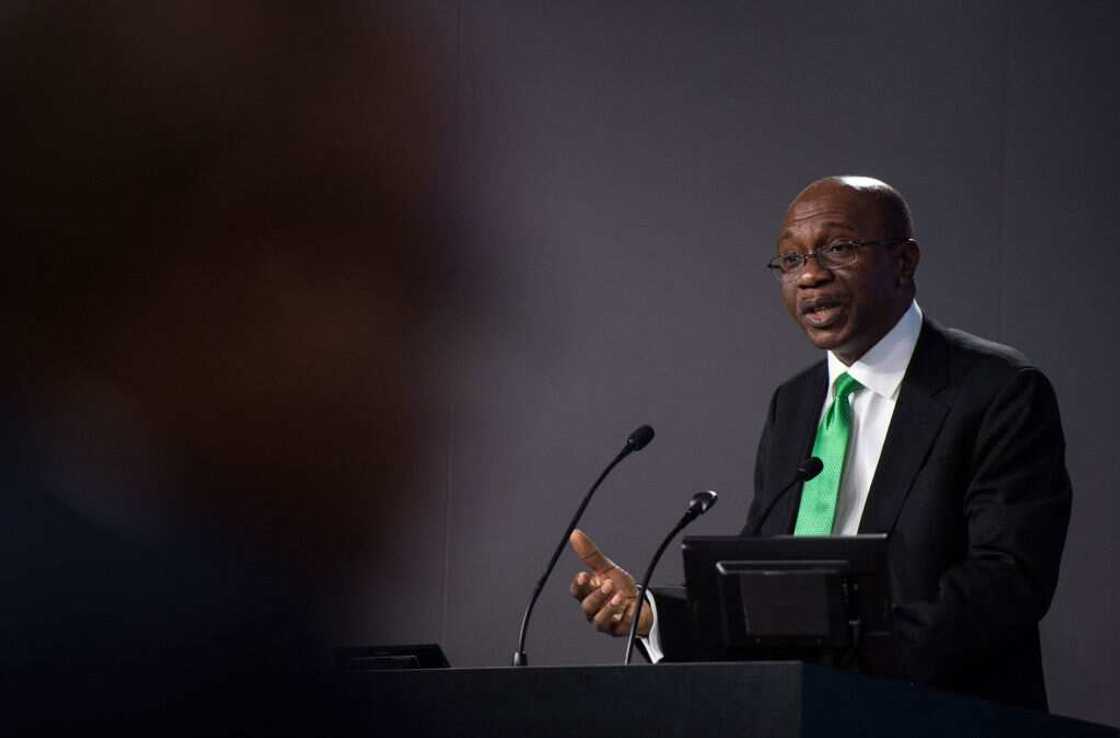EFCC Attacks Black Market Operators, Insider Reveals What CBN Did to Boost Naira as it Gains N60 Per Dollar
- The naira regained about N60 to a dollar last week after it fell to N710 to a dollar two weeks ago, leading to speculations of further plunge
- According to reports, the Economic and Financial Crimes Commission (EFCC) raided black market operators last week in Lagos and Abuja
- A sourced disclosed that the CBN went on a mopping spree last week to curtail excess liquidity of the naira which resulted in its boost
After the naira dipped to an all-time low of N710 penultimate week, the value of the local currency rallied significantly last week in comparison to the US dollar on the Peer-to-Peer market on a week-on-week basis.
After the Economic and Financial Crimes Commission (EFCC) raided black market operators in Lagos and Abuja, the naira regained strength from its record fall against the US greenback on the black market, which boosted it to N60 per dollar on Friday, August 5, 2022, and kept it up by N60 to a dollar in the last one week.

Read also
EFCC drops powerful warning for persons, organisations hoarding dollars, reveals 5 cities under watch

Source: Getty Images
EFCC threatens currency hoarders
The EFCC raided bureau de change operators and queried them about their operations while it took photos of the dealers and made copies of their ID cards, according to a report by Nairametrics.
PAY ATTENTION: Follow us on Instagram - get the most important news directly in your favourite app!
The anti-graft body threatened to arrest anyone found hoarding large amounts of dollars and other foreign currencies.
In a meeting with the representatives of the operators on Friday in Abuja, the EFCC Chairman, Abdulrasheed Bawa told them about the agency’s moves to bring anyone found culpable to book.
He said that the EFCC had intelligence which connects some people and organisations who keep foreign currencies, especially the US dollars to the fall of the naira.
What CBN did to make naira bouce back
However, a source at the Central Bank of Nigeria revealed to Legit.ng the steps the bank took to ensure that the naira regains its strength against major currencies in the world.

Read also
Atiku Abubakar makes big promises to help Naira gain value against US dollar if elected president
The source who spoke on the condition of anonymity because he was not authorised to speak on such a matter, stated that the CBN went on a mop-up spree of the naira last week which resulted in some scarcity of the currency.
According to him, excess liquidity was responsible for the fall of the naira two weeks ago and that CBN took the step to mop up the naira to create some sort of scarcity which led to its marginal recovery.
The source said
“What has happened was that there was too much money in circulation and when that happens, it creates a glut in the system which makes the local currency less valuable in comparison to other international currencies.”
According to the source, the CBN was shocked about the naira’s fall and decided to take a drastic step in order to save it from the further plunge.
He also denied reports that the CBN has been printing money to put into circulation as the country spends its revenue on debt servicing.
He said.
“Every economist knows that indiscriminate printing of money destroys economies and there is no way the CBN would embark on that mission unless there is an urgent reason for that.”
Experts have advocated boosting dollar liquidity as a key to strengthening the naira, saying there would be a reduction in the activities of the black market operators.
Analysts predict what will happen to Nigeria if the Naira continues its downfall
Legit.ng reported that Nigerians were alarmed on Wednesday, July 27, 2022, when news filtered in that the Nigerian currency has fallen to its lowest in history at N710 per dollar in the parallel market.
The news threw jitters down the spine of many who saw the fall as the crash of the economy under the watch of President Muhammadu Buhari and the Central Bank of Nigeria’s governor, Godwin Emefiele.
Experts have predicted that the Emefiele-led Central Bank is helpless and will actually drive the naira above N700 per dollar, as reported in an article by Legit. ng.
Source: Legit.ng


